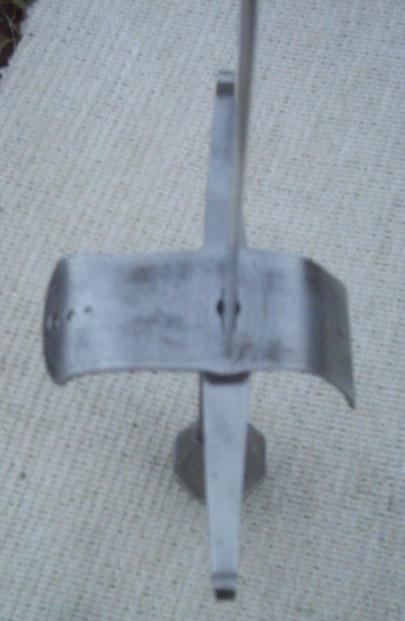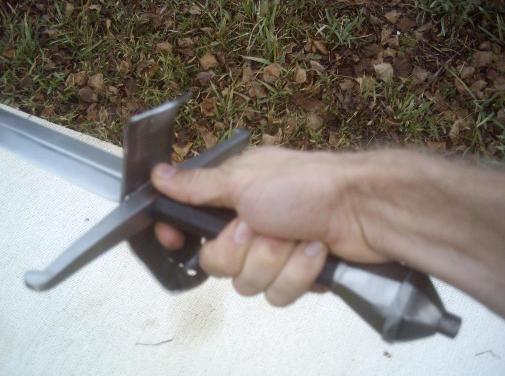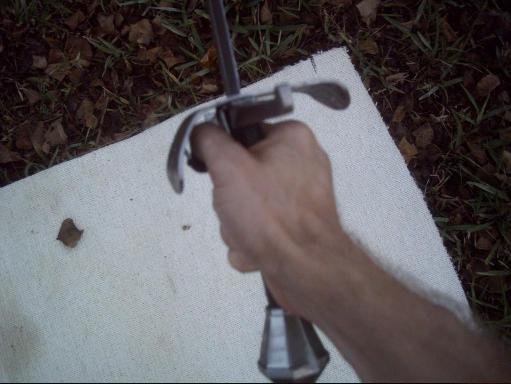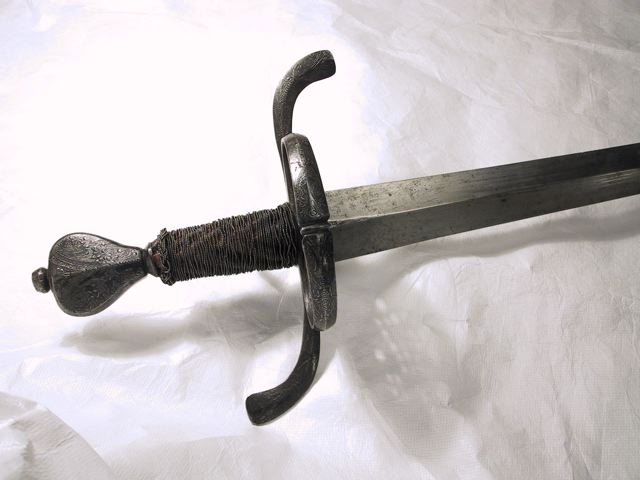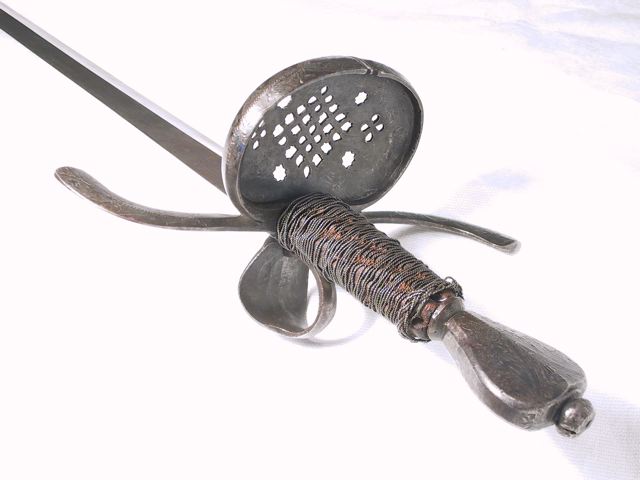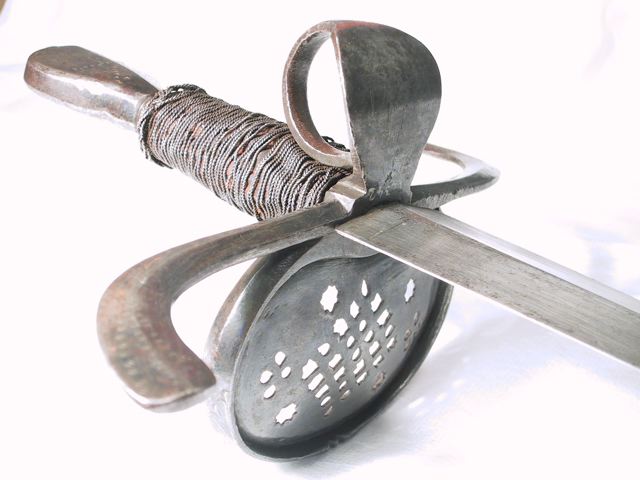Posts: 874 Location: Paris, France
Sat 19 Jan, 2008 10:05 am
I wonder if the ring really helps in your thrust-oriented grip? In my understanding, fingering the ricasso on rapiers and cut&thrust swords provides a better feel essentially by shifting the hand further towards the
center of gravity, which does not really happen with this grip. Does the ring really change the mechanics of the grip?
The position of your hand relative to the quillons and edges is sowewhat similar to what Girard Thibault advocates for the rapier, the biggest difference being that your wrist seems to remain on the top of the pommel, when Thibault puts more on the side. Thibault's position seems more relaxed, and lines up the forearm better with handle. I think this could take a better advantage of the hilt's coverage as well...
Also, how easy is it to switch between these two grips? This could be important for a polyvalent sword.
I have seen saber hilts with just quillons and thumb ring, so your design seems like something logical to do to increase hand protection. But the use of these two grips you describe prevent the addition of a knucklebow, which would be impractical with the thrusting grip. Perhaps people tended to stick with one hand position, in order to be able to get better hand protection?
